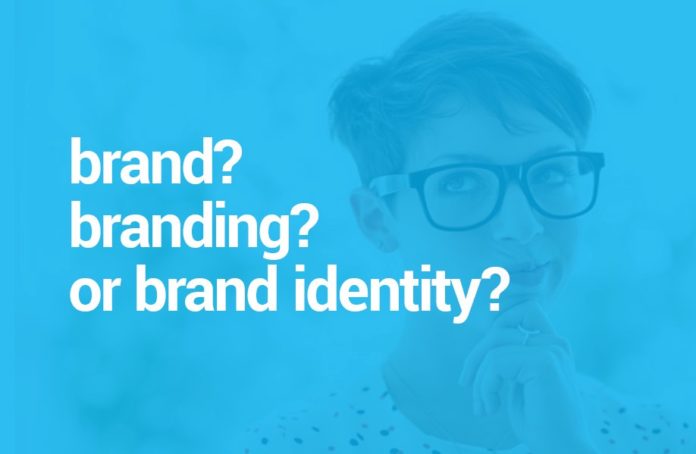By Shrijay Sheth
Running a business is one thing and creating a brand from it is a different ballgame altogether. This is where the options split up – to create an iconic brand of the founder/key person OR to create a brand out of the product/services. There are instances in the past where individuals rise to the occasion and evolve into a brand themselves. The best example is Steve Jobs. He single-handedly connected to the audience based on the persona that he built. People found their voice in his thoughts, and ultimately their dream in the device design he offered under the brand name Apple.
On the other hand, there are lots of cases wherein the product takes the centre stage but the founders are hardly known. Consider Wikipedia or for that matter, Oracle. Such successful offerings… and yet the names of their founders remain unknown (as compared to Steve Jobs at least).
And what happens later is the rewards that YOU reap from the brand or the BRAND reaps from of your name. Sometimes it gets all squared. Take the recent example of Tesla. How the popularity of Tesla is rising along with that of it’s founder Elon Musk. Often, things can go wayward in such cases. The classic example is again that of Apple during the later days – when Steve Jobs was out from the business and the brand’s position in the market was at great risk.
Strategically, the standpoint is very important. As a business leader, you need to take a call on how you think your business can progress. Carrying a certain credibility in the market helps to establish the identity in a relatively easy manner. This is called personal branding.
Few of the successful ways involve;
– Building your own platform to share your voice.
– Own your own social media space – dedicated to the brand that you are; not the person.
– Share knowledge across various platforms related to your business to create thought leadership.
– Producing value with content creation or curation that’s in line with your offerings.
In today’s job market and entrepreneurial landscape, there is no room for being another face in the crowd. You have to separate yourself from the competition. You have to be more appealing to your target audience and you can achieve it by creating a recognizable personal brand.
When you do such activities the brand starts getting into the picture. You reflect what the brand stands for and the brand reflects your personality. That’s when your face gets well recognised within the industry. You and your brand are now synonymous. The best example is of Richard Branson. Virgin records turned out to be hugely successful because he stayed true to the brand perception. Here the personal branding is smoothly translated into a business branding.
People do not live forever but expect their brands to remain immortal. So even if you are choosing to start with personal branding and leverage that for business branding, the legacy should become an important factor. For the brand to outlast you, at a certain point, it has to distance itself from your identity. The best example from Indian business fraternity is that of the TATA.
Now the question is – how and when to separate a person and a brand? How would you associate your product and services associated with you with causing disruptions?

Source: Getty Images
That’s what Tim Cook did with the Apple brand when Steve Jobs departed. A perfect case of how corporate branding built through personal branding can outgrow later to make brands immortal. When Apple was introduced in the mainstream consumer segment with iPod, most of the credit for its success went to Jobs. But ever since Cook took over Apple, that message was changed and morphed into one with a consensus that the CEO doesn’t matter, and the company will carry on selling great products/services regardless of who heads it. There were market speculations as well about Apple stock steeply dropping when Steve Jobs’ health was critical. The brand sustainability was questioned. But skilfully, Cook negated the impact and now it is all about Apple, not Tim Cook.
On the contrary, there are businesses that appeal to a niche market and the personal brand label is associated with the skills that one possesses. In such cases, the name and brand are synonymous, meshed as if inseparable to sustain the business. People like Manish Malhotra or Bejan Daruwala hold a great reputation in the fields of fashion designing and astrology, respectively. Here, such a brand name speaks of the authority and the services that are expected from them. Even if they are not directly serving each and every client, anything that goes from their brand name has their label on it. It all boils down to the name that speaks of authority. Most of the professionals in their area of expertise work like a brand itself.
As a business owner, you should be aware enough to realize that brand has outgrown the founder to be way too successful a name now. Here’s when you should be putting the brand first and not the person. And that’s the time to play the brand longevity battle & leverage the core business values that turns to a brand persona. Later on, shifting it to a corporate branding gets easier, carrying the credibility of the person who made it a brand. The best example is that of the Dhirubhai Ambani. The legacy of reliability and assurance of returns is passed on to the shareholders even after the generation is changed. Hence, making sure that the brand delivers exactly what its leader promised to.
And once you have successfully created a brand, you will need to protect it as well using the intellectual property rights that you have. There are plenty of IPRs for brand protection like Trademark protection, Patents and Copyrights. It is better to know about the intellectual property protection so as to enjoy the monopoly and the authority that your brand enjoys.
About the Author:
 Shrijay is an entrepreneur with more than ten years of experience in working with hyper-growing digital commerce companies across the globe. Currently, he runs an eCommerce strategy and Analytics consulting company, along with a LegalTech venture in India called https://www.legalwiz.
Shrijay is an entrepreneur with more than ten years of experience in working with hyper-growing digital commerce companies across the globe. Currently, he runs an eCommerce strategy and Analytics consulting company, along with a LegalTech venture in India called https://www.legalwiz.












